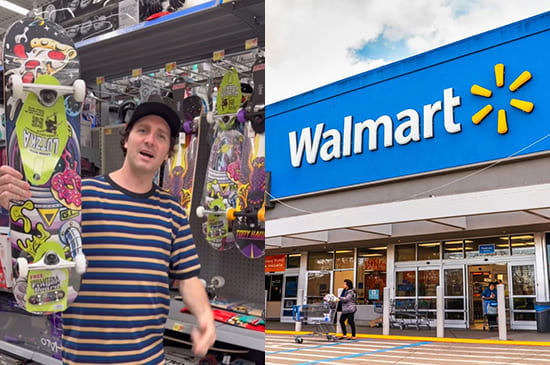
Professional skateboarders have often maintained their independence, living by the ethos of DIY (Do It Yourself) culture.
However, a recent event has shaken the skateboarding community as pro skateboarder Greg Lutzka proudly announced a groundbreaking partnership with retail giant Walmart.
RELATED: Dwindle Distribution’s Investment Company Fired Bill Weiss & Took Madness Skateboards From Him
While some are excited about the move and skepticism from others, it raises crucial questions about the future of skateboarding and the role of corporations in the industry.
For decades, skateboarding has thrived as a counterculture, with many skateboarders taking pride in their grassroots origins.


Independent skate shops and brands have played a significant role in nurturing talent and shaping skateboarding culture.
Skaters revered their autonomy, with an emphasis on creativity, self-expression, and the rejection of mainstream commercialism.

Lutzka's partnership with Walmart is a consequential departure from the traditional model.
Walmart, a multinational corporation, is one of the largest retailers in the world for its presence in various industries, including sports and lifestyle.
RELATED: Corporate Investors Fired ALIS Skateboarding Core Skater Brand Owner
The partnership will likely open up new avenues for both Lutzka and Walmart, from merchandising opportunities to collaborations and events.
Hence, Lutzka's bold move with Walmart sparks debate about whether the partnership will change skateboarding for the better or worse once it's no longer popular with no money involvement.
How can skateboarders balance maintaining their cultural integrity and seizing opportunities for growth and recognition?
Can partnerships with major corporations coexist with the DIY spirit that defines skateboarding?
